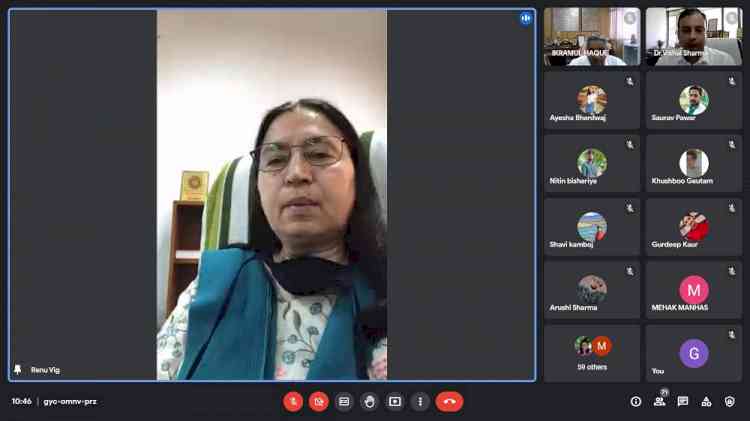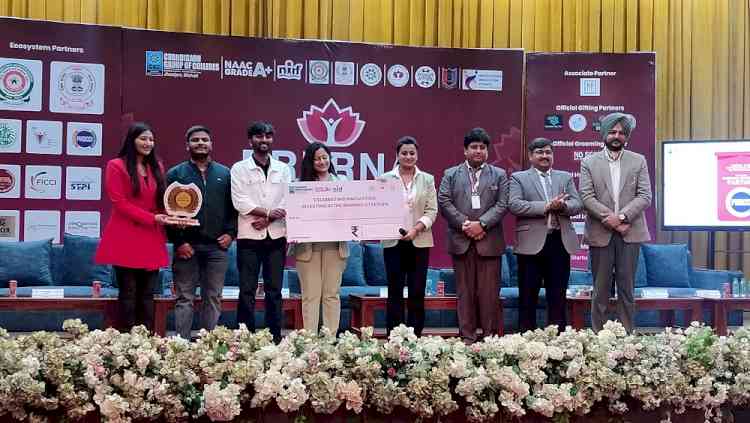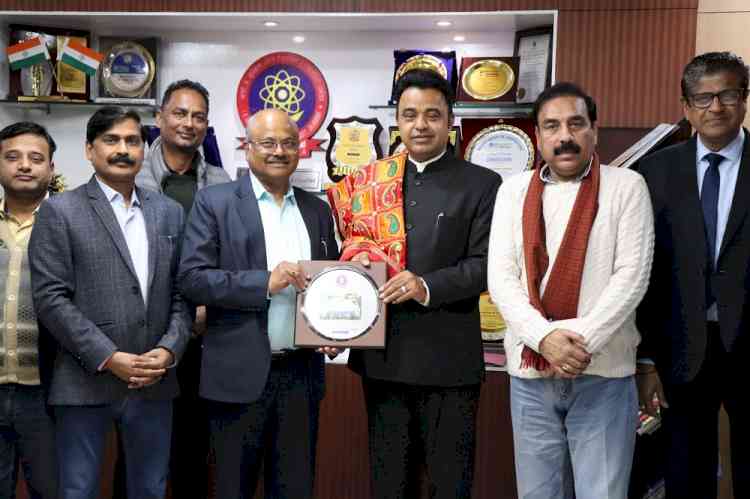PU’s Institute of Forensic Science conducted webinar on Role of Forensic Science in justice delivery system in sexual assault case examination

Chandigarh, March 22, 2022: “Any criminal offence is created by three factors- Victim, crime scene and criminal. All these factors constitutes to form the crime triangle”- as stated by a renowned forensic scientist, Dr Ikramul Haque, who is currently working as the Director at CFSL (MHA), Chandigarh. Dr. I. Haque delivered a special lecture on “Role of Forensic Science in justice delivery system with special reference to sexual assault case examination” as a part of National Lecture Series being organized at the Institute of Forensic Science &Criminology, Panjab University, Chandigarh.
The Chairperson, Dr. Vishal Sharma hosted the webinar and welcomed the guests by giving a brief introduction regarding the topic of webinar. He said that the importance of Forensics in India cannot be overstated. The recent years have witness a sharp rise in number of sexual assault cases with extremely low conviction rates. In order to improve the conviction rates we need to bridge the gap between Investigating agencies and the Forensic examination laboratories. He also added that more sensitive techniques needs to be used in the evidence examinations, creation of trained human resource in Forensic Science and above all the full potential of forensic science needs to be utilized in all crimes cases as forensic science plays an eminent role in providing valuable evidence from crime scene.
The Chief Guest of the National lecture Prof. Renu Vig, Dean University instructions, Panjab University in her inaugural address explained the use of artificial intelligence in Forensic Science. She explained the use of Artificial Neural Networks ANN in automatic number plate reading of automobiles and in automated handwriting identification system. She further added that a design incubation centre has been established in Panjab University where students are working on various new ideas.
Dr. Haque, discussed the legal aspects of Forensic Evidence India in reference to the various sections stated under CrPC and the amendments that have been made over the years. He mentioned that there are four key players in solving any criminal case- Police officials, Medical officer, Forensic expert and judicial system. The involvement of these four players is crucial in solving any case. He even said that the rate of conviction for sexual assault cases is very low in India i.e. around 30% which needs to be addressed immediately. The main aim of his talk was to bring all the stakeholders on the same page in order to contribute to enhanced rate of conviction and to better understanding of limitations of Forensic Examinations and impediment in analysis. The lecture was made more interesting and knowledgeable with the discussion of real time cases solved at CFSL, Chandigarh. He even enlightened the audience with new technologies being used in DNA fingerprinting involving STR analysis. The entire lecture proved to be very informative as it welcomed the queries of young minds from various departments and institutions.
The vote of thanks was given by Dr. Jagdish Rai, faculty at the Institute of Forensic Science & Criminology. The lecture was attended by about 100 participants including faculty members, scientists and students from all over India.Dr. Vishal Sharma, concluded the webinar by saying that the web lecture was planned to aptly fulfil the need of such programs so that awareness can be spread across the general public, students and the officials to become aware of the modus operandi and type of crimes prevailing in the country.


 cityairnews
cityairnews 








